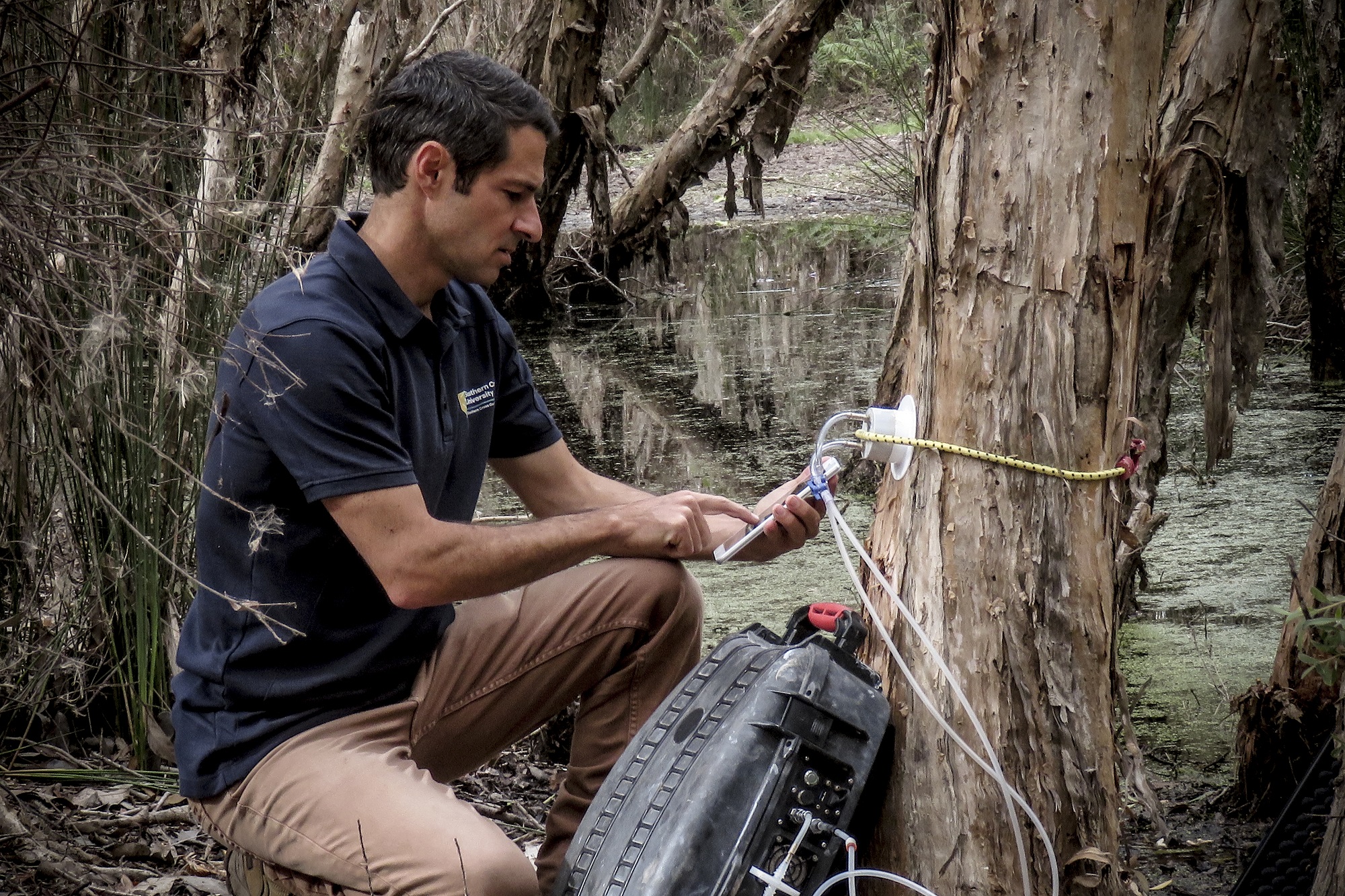Two Southern Cross University researchers, Dr Luke Jeffrey and Dr Judith Rosentreter, have secured Australian Research Council Discovery Early Career Researcher Award grants worth a total of $891,197 to further their studies on methane emissions from vegetation, soils and water, which have already turned up some game-changing findings.
So we now know that bark dwelling microbes have the capacity to regulate the methane emissions from trees and therefore may play an important mitigation role in the global methane cycle and in climate change.
Dr Jeffrey's previous research, which earned him a Chancellor's Medal from Southern Cross University and has been recognised in the United Nations Intergovernmental Panel on Climate Change Assessment Report 6, has shown that wetland trees can emit substantial amounts of methane, or 'treethane', via their stems or trunks - a process that, until now, has been broadly overlooked.
"While wetland soils store vast amounts of carbon, they also emit methane, a greenhouse gas that is about 45 times more powerful than carbon dioxide when it comes to warming our planet," said Dr Jeffrey.
In a different but related area of study, Dr Judith Rosentreter's new research, funded with an ARC DECRA grant worth $434,042, will focus on identifying and quantifying methane oxidation and production processes in mangrove environments, mostly in soils and water.



You're the one that made the title that way. I am asking why you chose that wording. I did read the article and your title makes zero sense in context.
The implication from your title is that "cattle farming isn't so bad because look at this study that doesn't reinforce that insinuation!"
Yes, mate, you're never wrong. Just leave it, huh?
*removed externally hosted image*
I'm actually often wrong I just think that is odd wording given the context.